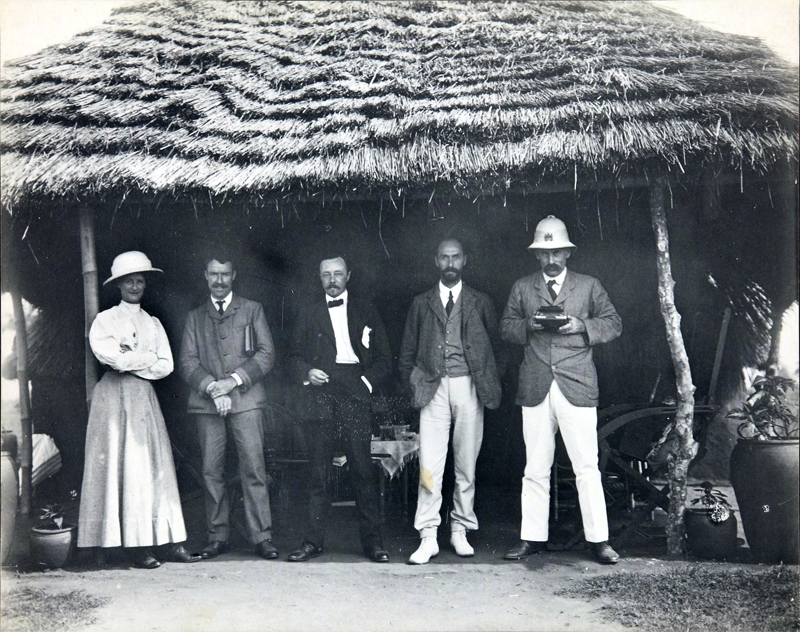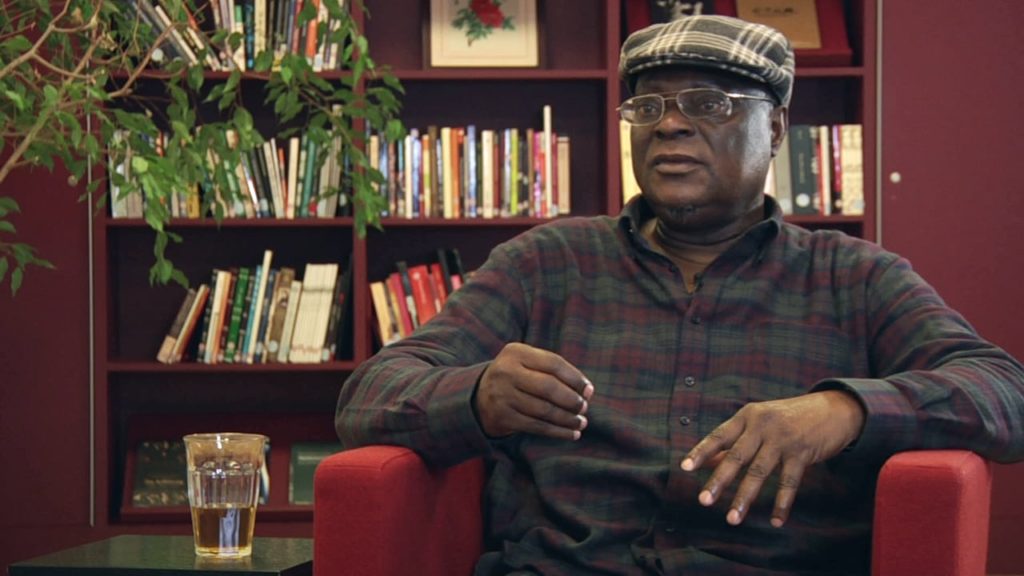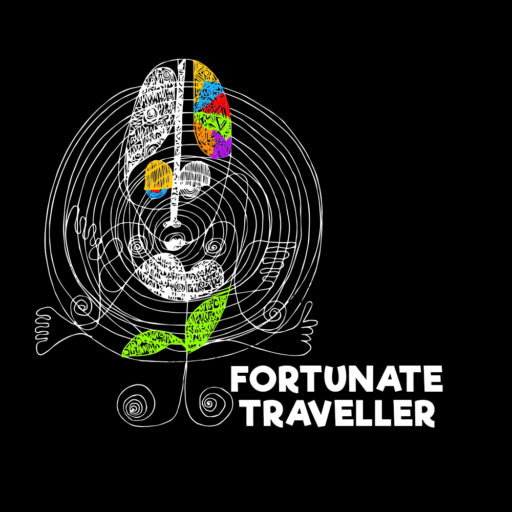
Tableau 1
[Two narrators – Lander and Pasko – come onto the stage, bringing their dairies.]
Lander: In 1825, Hugh Clapperton, a navy captain, was commissioned by the British government to explore the area of the ‘Dark Continent’ lying just east of the Cape Coast, and travel up to Sokoto, then capital of the Fulani Empire established by Sultan Othman dan Fodio.
Pasko: Clapperton succeeded in reaching Sokoto, but he never returned from the journey. The records of this extraordinary expedition did however come to be known to the world, thanks to the diary kept by a personal servant — [He indicates the other Narrator, who bows ceremoniously]—whom he took along, a young man called Richard Lander.
Lander: Clapperton also took along on the expedition, to act as interpreter, an Hausa man who had been captured years before by slave raiders and had been freed by a British anti-slavery patrol ship. His name — [Pointing to the other Narrator]—was Abubakar, but they called him Pasko. [Pasko bows]. And unknown to anybody, he too kept a diary, which unfortunately has never been found.
Pasko: Until now. Yes, this is the Diary. [Shows it]. Because, as you know, any poet who is clever enough can always reconstruct a Diary. [He opens his diary elaborately and prepares to read.]
Lander: [Doing the same]. Ladies and gentleman, my friends, this play is based on the known and the unknown diaries of that journey by Clapperton, which proved to his last.
[He begins very elaborately to open his Diary. Lights fade off the two Narrators, and picks up Lander in a spotlight.]
Tableau 2
[Spotlight on young Lander, dressed as an English working class boy, holding a newspaper in his hand.]
Lander: There was a charm in the very sound of Africa that always made my heart flutter on hearing it mentioned. And then its boundless deserts of sand; the awful obscurity in which many of its interior regions were enveloped; the strange and wild aspect of countries that had never been trodden by the foot of a European – all these united to strengthen the determination I had come to, of embracing the earliest opportunity to penetrate into the interior of that immense continent…
[Clapperton comes out. He’s heard the last words, and frowns. In his hands are Lander’s refrence letters.]
Clapperton: Is that why you’ve come to me?
Lander: [Startled, removes his cap]. Yes, sir.
Clapperton: You have any idea at all what the mission’s about?
Lander: Oh yes, I do sir! [Effusively] I hear Her Majesty’s government intends to set out expedition, for the purpose of exploring the yet undiscovered parts of central Africa… [He stops, confused, as Clapperton waits, staring at him.] … and also, sir, of endeavouring to ascertain the source, direction, and termination of the mysterious River Niger, which… which… [Clapperton waits] … I mean, sir, which, er… the late Mungo Park lost his life trying to resolve…
Clapperton: Yes?
Lander: I hear the Captain’s to be placed at the head of the expedition.
Clapperton: You seem to know quite a lot. For your age.
Lander: [Almost pleading]. Will you… I mean, sir, I’ve come to beg the Captain to please take me along.
Clapperton: Why?
Lander: Because… because, sir, I read the reports of your last journey to Africa, and I’m just dying to travel with you!
Clapperton: I see. But do you realise it’ll be extremely hazardous?
Lander: I know, sir. But I hope the Captain’s read my credentials?
Clapperton: These.
Lander: There are references from the Duke of…
Clapperton: Young! You’re much too young, my boy!
Lander: That’s true sir. But as the Captain will read, I’ve some experience. [In a rush, fearing from Clapperton’s gesture of impatience that he’s about to be dismissed]. At the age of ten I went with a West Indian merchant to St Domingo. I spent three years there, and got used to tropical diseases.
Clapperton: Yes?
Lander: And… and… after that, I returned to England, and was in service of various noblemen, one of whom took me on a continental tour. Then two years ago, I went to work for Major Coolbrooke, who undertook the Commission of Inquiry into the new the new colony of South Africa. With him I had the opportunity to visit every part of the colony, and survived many hair-raising incidents. I returned last year and since then I’ve been in the service of the Duke of Northumberland, and…
Clapperton: Enough, Lander. [After a pause, examining him]. All right, consider yourself hired. [He begins to leave].
Lander: But… Captain, sir?
Clapperton: [Pauses, his mind is busy with other things]: Yes!
Lander: The Captain’s forgotten to tell me, what’ll be my duties, sir?
Clapperton: Your duties! Er, let’s see… Secretary! How do you like that? You’ll be my private secretary.
Lander: [Throws up his hat]. Whoooppeee! Thanks! Thanks, sir!
Clapperton: If you’re coming into my service, Lander, you’ll have to learn to be more restrained!
Lander: [Immediately sober]. Sorry sir, Captain!
Clapperton: I intend to set forth on August 24th. That’s two weeks from now. Think you can be ready by then?
Lander: Of course, Captain! Even tomorrow, if you wish, or tonight even, because… [Catches his eyes, and quickly sobers up again]. Sorry sir. Yes, I can be ready by then.
Clapperton: Good. Go and prepare.
[Exit Lander, dancing. Clapperton turns to go, and freezes. From another end of the stage, Pasko enters, his hat in his hands. He is about average height, and in his late fifties]
Pasko: Think of it! An expedition going to Sokoto, to my homeland! Incredible! The home I’ve not seen for the past twenty years since I was captured by those devils and sold into slavery! Oh, just the thought of it! I’ve not slept a wink since Mrs Belzoni told me! My head’s been whirling and whirling with questions, questions! How’s the place now? And my family, will I still find any of them? Are the Felattas still in Gobir, especially since the Abolition? Have my people finally dislodged them now? Oh, how I long to return just to see! And what better chance will I ever have than under the protection of the British! No, I must not miss it! I must travel with the expedition! [Conspiratorially, to audience]. Besides I am not growing younger, you know! Look at me, at my age! No child yet, you get what I mean? Britain is a good place, but you must admit, it’s no place for a black man to find a wife! I mean, a wife! Not just a – ah no, I just must go with the expedition!
[Steps forward to Clapperton. The scene unfreezes.]
Pasko: Sir…
Clapperton: You’re the slave Mrs Belzoni me about?
Pasko: Er… I beg your pardon, sir?
Clapperton: Are you not from Mrs Belzoni?
Pasko: Yes. But with all due respect, Captain, I am not a slave.
Clapperton: Oh!
Pasko: The British navy rescued me from that fate several years ago, and trained me as a sailor. I have been working since as a free man. [Brief pause. Clapperton waits].
I’ve come because I worked with the late Mr Belzoni on his last journey to Timbuktoo. I was the interpreter to the expedition.
Clapperton: I see. [Takes a closer look]. So, what languages do you speak?
Pasko: Hausa, Nupe, Yoruba, Fante, some Arabic, a little French, and of course English. That makes seven, Captain.
Clapperton: [In halting Hausa]. Mai sunan ka? (What is your name?)
Pasko: Abubakar, Captain. But for many years now, people call me Pasko.
Clapperton: Right, Pasko. You’re hired.
[He leaves. Lander returns]
Lander: The Captain?
Pasko: He just stepped out. That way.
Lander: Oh!
Pasko: You’re his son?
Lander: Oh no! [Offers his hand]. Lander, Richard. I’ve just been hired. And you?
Pasko: Abubakar, the Interpreter.
Lander: Nice to meet you, sir. We’ll be seeing much of each other then. I’m the private secretary to the Captain.
Pasko: You? But you’re so young! Well, I’ll call you ‘Little Master’ then.
Lander: [Amused] Little Master! I like that!
Pasko: And you’ll call me Pasko, as everybody does.
Lander: Right, Pasko! So you know Africa then? I mean, since you speak the language…
Pasko: I was born there. In Sokoto.
Lander: Ah! Pasko, may I, can I ask something of you?
Pasko: Go on.
Lander: They say Africa is wild, full of savages. The Dark Continent. You… you’ll take care of me over there?
Pasko: Of course I will, Little Master! Some of the savages are just as young and innocent as you!
Lander: Oh really! You know, it’s not that I haven’t travelled out before, but…
[Clapperton appears].
Clapperton: [To Lander, as he gives him a sheet of paper] Read this to me. I want to hear how it will sound on the morning of our embarkation. [As Pasko makes to go]. No, stay. I’ll like to hear your opinion too on it. Go on, Lander!
Lander: [Reading] Gentlemen, I welcome all of you…
Clapperton: Louder, my boy, louder! The whole body of the expedition is standing right there before me! All right, give it to me, and listen! Both of you will tell me how it goes.
[He begins and as he reads, a giant map of Africa, as known in those days, lights up on a screen behind them, or is unfolded by stage hands.]
Clapperton: I welcome all of you. Some of you may know the others, some of you will be meeting for the very first time. But no matter, from now on we are one single team! And a formidable team it must be! But first, let me introduce some of the principal officers. [Lights change. On the screen, we begin to see the shadows of the mentioned characters as they file in and climb aboard the ship]. Here, Captain Pearce, the consul-designate. Dr Dickson and Dr Morrision, who’ll be taking care of our health problems on the journey. And over there, Dr Dickson. He has only returned from the West Indies, where he was surgeon for several years. Young Lander here’s my personal servant. And Pasko’s our interpreter. He speaks some seven or so of the native dialects… [Turns to the map]. Well, here we are. Our landing will be at Badagry, and it is from there that we shall begin our journey into the interior of the Dark Continent. Our first destination, as you know, is here, Sokoto, the capital city of the Felattahs, whose ruler is Sultan Bello. Captain Pearce will be staying on there as Consul…. Then, from Sokoto, we’ll move on to Bornu, ruled by El Kanemi. From there we’ll cross the desert and return home through Tripoli, here. [Turns back to the men. The map gradually folds into the prow of a ship, and begins to move, to show the ship is moving. We hear the ship’s horns]. So gentlemen, that’s our itinerary. What dangers we will meet on the way, we do not know. But all of you here, I am proud to say, are men accustomed to danger, and have proven your capacity for endurance on the other occasions. So I have great hopes in you. Good luck to you all, and God be with you. Now let us pray…
[They kneel to pray as lights begins to fade and the British anthem rises. Briefly the light intensifies on the ‘ship’, and then goes into a sudden blackout, to come up again on the Narrators.]
Tableau 3
[Lander and Pasko, each reading his Diary].
Lander: On the 27th of August, 1825, in the 21st year of my age, we embarked from Portsmouth in the Brazen sloop of war, Captain Willis, and the shores of England gradually lessened in our view.
[The song from the crew rises now in the background. They are singing ‘Over the hills and far away’. Along with the singing, the display of screens goes on in the background].
Pasko: On the 8th of September, we touched at Porto Santo, in the Madeiras, and a week later, dropped anchor at Santa Cruz.
Lander: Then on to Teneriffe… St Antonia, one of the Cape Verde Islands…
Pasko: On the 4th and the 9th October, we chased some French schooners, captured one of them… and I saw for the first time that the horror had not ended after all…
Lander: The ship was headed for St Domingo and in it, we discovered 196 human beings, chained together in couples, and literally crammed between decks of barely 3 feet in height.
[The screen displays the crammed hold of a typical slave ship]
Pasko: The slaves were not only unable to move about but were also forced to remain in a sitting posture throughout the voyage.
Lander: And a strong and disagreeable odour proceeded from the confined space in which these poor creatures were huddled, such that the air was tainted with it, and I hastened back on board the Brazen as fast as I could.
Pasko: That as however only first of many such encounters with slave ships on the route. Spanish, Portuguese and French traders paraded the shores, and had devised all sorts of tricks to beat the British patrols… And I began to ask myself in fear, if I had taken a wise decision after all in deciding to come on the expedition.
[The slave songs rise, briefly].
Lander: On the 21st October, we reached Freetown on the River Sierra Leone.
Pasko: Cape Coast on the 14th November… And Accra three days later, where the Fante king came to visit us.
Lander: On the 21st, we got to Papoe, and here again we had to use force to get the king to release the slaves in confinement in the town.
Pasko: When these slaves at length made their appearance, we saw there were 231 of them, men, women and children, all in complete state of nudity and heavily manacled, several of them already lamed by the weight of their irons, and skin sadly excoriated.
Lander: Their emaciated frames had been wasted by disease and close confinement, by scantiness of food, and the impure air of their prison-house.
Pasko: Seeing them, a great fear filled my heart. Was it perhaps too early yet, for a freed slave, to be going back to Africa?
Lander: I must say that throughout the journey, from Sierra Leone, the appearance of the coast was generally speaking singularly beautiful and attractive… with several small villages embellished with lovely trees, dotting the borders of the sea.
Pasko: Was Africa still unsafe for Africans, I asked myself?
Lander: The only melancholy thing, however, is that a great portion of this delightful region is peopled with a race of savages and semi barbarians, speaking a variety of languages, and engaged in perpetual broils amongst each other.
Pasko: As we went closer and closer to Badagry, my apprehensions were beating in my ears like a thunder of hooves!
Lander: Finally, on the 28th November, we arrived Badagry roads, and the English merchant Mr Houston, led us into his house, from where Captain Clapperton sent a message to the king, Adele.
Pasko: King Adele gave us a magnificent reception, with all his wives and chiefs in attendance. There was much to drink… Then, at the climax of the feast, the king took my master aside, to his private room. And of course I, as the interpreter, went along…
^This short play is an extract taken from Femi Osofisan’s Richard Lander and the Travelling Polygamist (2009: Concept Publications), a play based on the diaries of Hugh Clapperton‘s last journey into Africa. It’s published with the kind permission of the playwright and the publisher.
 Femi Osofisan, NNOM, is a professor emeritus of Drama at the University of Ibadan, Nigeria where he was the former Head of the Department of Theatre Arts. He is a distinguished playwright, poet, novelist, essayist, literary critic and translator. FO, as he is fondly called by his peers and colleagues, is a restless artist with over seventy plays to his credit. Some of his numerous plays include Morountodun and Other Plays (1982), The Oriki of a Grasshopper and Other Plays (1995) and Women of Owu (2006). Some of his poetry collections include Minted Coins (1987), Dreamseeker on Divining Chain (1993). He is also the author of the essay collection The Nostalgic Drum: Essays on Literature, Drama, and Culture (2001). With James Gibbs and Martin Banham, Osofisan has edited numerous volumes of the African Theatre series, including African Theatre in Development (1999) and African Theatre: Diasporas (2008). In 2016, he became the first African to be awarded the prestigious Thalia Prize by the International Association of Theatre Critics and was honoured, in the same year, as one of the icons of African Theatre at the Cairo International Festival for Contemporary and Experimental Theatre. His achievements have been honoured by various institutions and nations through a number of important awards and orders of merit.
Femi Osofisan, NNOM, is a professor emeritus of Drama at the University of Ibadan, Nigeria where he was the former Head of the Department of Theatre Arts. He is a distinguished playwright, poet, novelist, essayist, literary critic and translator. FO, as he is fondly called by his peers and colleagues, is a restless artist with over seventy plays to his credit. Some of his numerous plays include Morountodun and Other Plays (1982), The Oriki of a Grasshopper and Other Plays (1995) and Women of Owu (2006). Some of his poetry collections include Minted Coins (1987), Dreamseeker on Divining Chain (1993). He is also the author of the essay collection The Nostalgic Drum: Essays on Literature, Drama, and Culture (2001). With James Gibbs and Martin Banham, Osofisan has edited numerous volumes of the African Theatre series, including African Theatre in Development (1999) and African Theatre: Diasporas (2008). In 2016, he became the first African to be awarded the prestigious Thalia Prize by the International Association of Theatre Critics and was honoured, in the same year, as one of the icons of African Theatre at the Cairo International Festival for Contemporary and Experimental Theatre. His achievements have been honoured by various institutions and nations through a number of important awards and orders of merit.
Critical writing on Osofisan’s work includes Emerging Perspectives on Femi Osofisan (2009, edited by Tunde Akinyemi and Toyin Falola), Ancient Songs Set Ablaze: The Theatre of Femi Osofisan (1996, by Sandra L. Richards), and The Drama of Femi Osofisan: A Critical Perspective (1995, by Muyiwa P. Awodiya).
Cover photo credit, The National Archives UK


